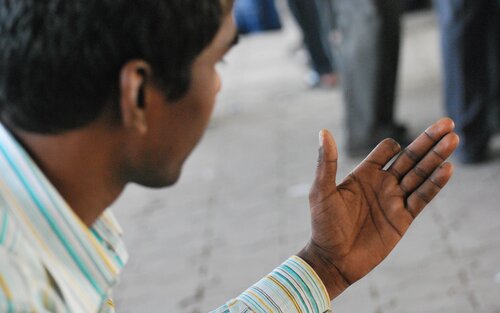Amputation - Treatment and Therapy in Uganda
Amputation is the surgical removal of a limb or other body part. It is a drastic measure that is usually only taken when other treatments have failed or are not possible. In Uganda, the most common causes of amputation include trauma, chronic diseases, birth defects...

In Uganda, the most common causes of amputation are:
Trauma: This includes accidents such as car accidents, falls, and injuries from war or violence.
Chronic diseases: This includes diseases such as diabetes, cancer, and peripheral vascular disease.
Birth defects: Some people are born with limbs that are missing or deformed.
The aftercare of an amputation in Uganda is similar to that in other countries. It typically includes:
Prosthesis fitting: A prosthesis is an artificial limb that is used to replace the missing limb. It can help people with amputations to regain their mobility and independence.
Drug therapy: Medication can be used to treat pain, infection, and other complications of amputation.
Physiotherapy: Physiotherapy can help people with amputations to regain their strength and range of motion. It can also help them to learn how to use their prosthesis.
In Uganda, there are a number of organizations that provide amputation care. These organizations include:
- The Uganda National Orthopaedic Hospital: This is the largest orthopedic hospital in Uganda. It provides a range of services for people with amputations, including prosthesis fitting, drug therapy, and physiotherapy.
- The Red Cross: The Red Cross also provides amputation care in Uganda. It has a number of clinics and hospitals that offer these services.
- The Rotary Club: The Rotary Club is a non-profit organization that provides support for people with disabilities in Uganda. It has a number of projects that help people with amputations, including providing prostheses and funding physiotherapy.
If you or someone you know has had an amputation, there are a number of resources available to help you. Please contact one of the organizations listed above for more information.
Here are some additional things to keep in mind about amputation care in Uganda:
- The cost of amputation care can be high, especially for people who do not have health insurance.
- There may be a shortage of prostheses and other rehabilitation services in Uganda.
- The quality of amputation care can vary depending on the location.
If you are considering amputation, it is important to talk to your doctor about the risks and benefits of the procedure. You should also ask about the availability of amputation care in your area.
